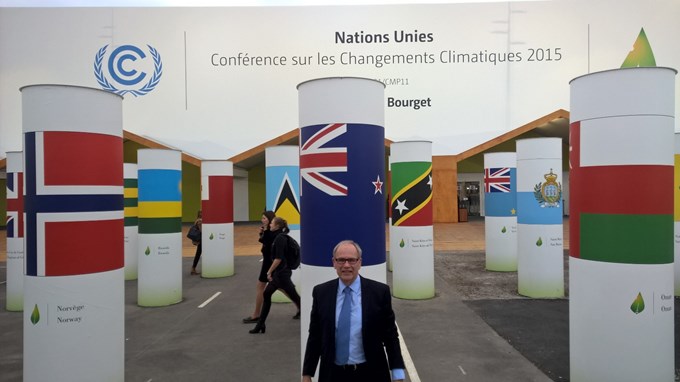Auckland has been admitted to the world’s leading local government climate change action group, C40.
“Our inclusion in this group is recognition of our efforts in terms of climate change and means we now have international support to increase the pace,” says Mayor Len Brown.
The C40 Cities Climate Leadership Group is a network of world megacities committed to addressing climate change. It supports member cities to collaborate effectively, share knowledge and drive meaningful, measurable and sustainable action on climate change.
Cities working together
“Auckland is an exceptionally diverse city made up of around 200 different ethnicities,” says Len Brown. “It is the capital of Polynesia and 1.6 million Aucklanders share the grave concerns of all Pasifika people about the effects of climate change.”
“By joining C40, Auckland will have access to more than 80 like-minded cities around the world, finding and implementing innovative solutions to the common climate challenges we face. I look forward to working with my fellow civic leaders in the network to tackle one of the most pressing issues of our time.”
C40 represents more than 500 million people and one-quarter of the global economy. To be eligible for membership cities must have a population of more than 3 million or be recognised as innovators in climate change initiatives.
Reducing greenhouse emissions
Auckland is the newest member of its global network as well as the first city in New Zealand to join. C40 drives urban action that reduces greenhouse gas emissions and climate risks while increasing the health, well-being and economic opportunities of urban citizens.
Auckland’s membership was approved at the 21st Conference of the Parties to the United Nations Framework Convention on Climate Change (COP21) in Paris, which the Mayor attended as part of the official New Zealand government delegation.
“When it comes to climate change, cities are where it’s at. We have the tools and the opportunities to make a practical difference to our shared climate future,” says Len Brown.
“Of the nearly 11 million tonnes of CO2 emissions in Auckland in 2013, 3.8 million came from road transport. That’s 35 per cent and the single largest emissions source, so anything we can do to give people options to their car is going to help.”
“As a united Auckland, we have an unprecedented opportunity to respond rapidly and strategically to effect the kinds of changes we need to ensure this city’s future. That’s why we have set a target of reducing our emissions by 40 per cent by the year 2040 (relative to a 1990 baseline).”
“The introduction of our new electric trains alone reduced emissions by 1 per cent.”
Public transport key to reducing greenhouse emissions
The mayor is now fine-tuning the action Auckland will take in the wake of the Paris Agreement to limit global warming to well below two degrees Celsius, with the intent to pursue a 1.5-degree target.
Among the initiatives the mayor says Auckland is already implementing but which require more effort in the wake of the Paris Agreement are the continued transformation of Auckland’s transport system, with the focus on public transport and cycle and pedestrian walkways and leading by example with council procurement, building and infrastructure design.
The retrofit of the council’s headquarters building has reduced energy consumption by 40 per cent and saved $535,000 a year.
“We are also moving to a Zero Waste City by rolling out separate organic waste collection and community-led resource recovery networks, so we really are walking the climate change talk.”
Auckland's inclusion strengthens C40 network
Rio de Janeiro Mayor and C40 Chair Eduardo Paes says the addition of Auckland strengthens the network as it seeks to create liveable cities for urban citizens today and a sustainable future for generations to come.
“In the wake of the historic Paris Agreement major action by cities is required to support that deal and put the world on a path to climate safety. I look forward to partnering with Mayor Brown to help build a sustainable future for all.”


